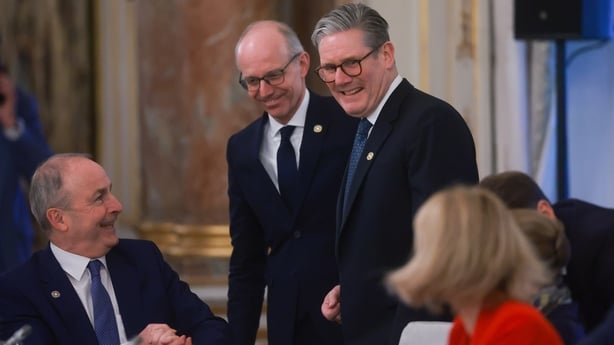EU leaders have agreed to boost defence spending in order to counter the threat posed by Russia and to fill critical gaps in military capabilities.
The commitments were made during an informal meeting in Brussels yesterday, which was overshadowed by US President Donald Trump's threat to launch a trade war against the European Union to counter the EU’s trade surplus with the United States.
European Union member states have been reflecting on boosting defence spending ever since Russia invaded Ukraine nearly three years ago.
The imperative has become more urgent since Mr Trump’s return to the White House and his threat to disengage from NATO or at least to force the EU to pay more for Ukraine’s defence.
The European Commission estimates that Europe’s defence needs will cost an extra €500 billion over the next decade. Member states have increased defence spending by around 30% since 2021, with an average last year of 1.9% of GDP
Ireland spends 0.22% of GDP on defence.
Last night, leaders agreed to explore ways of raising defence spending further, possibly by relaxing the EU’s budgetary rules, an expanded role for the European Investment Bank, and greater use of private capital.

Other ideas include joint borrowing at EU level, a proposal Taoiseach MicheÁl Martin has expressed scepticism about in the past, although yesterday he said Ireland was open to looking at options as they evolve.
Von der Leyen: EU will respond if unfairly targeted by US
In particular leaders pledged to fund critical capability gaps such as in air and missile defence, missiles, ammunition and military transport, all areas where Ukraine has needed huge support.
British Prime Minister Keir Starmer joined leaders during last night's dinner amid expectations of an EU UK defence pact that would be worked upon ahead of a summit meeting in May.







